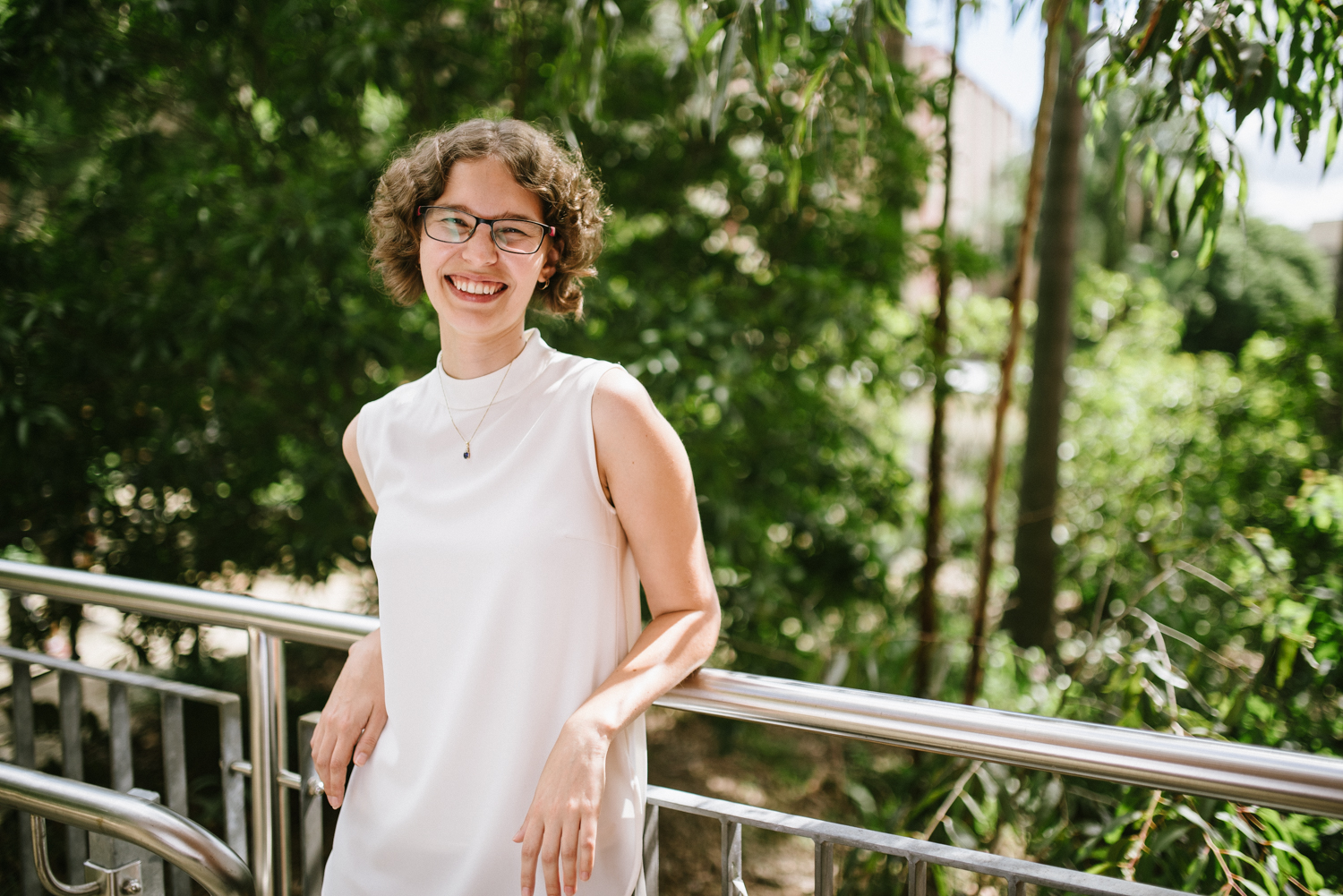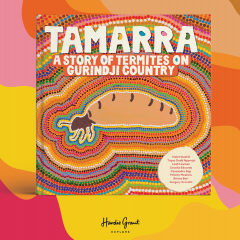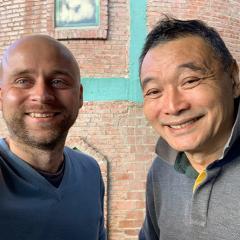Laura Clark, an HDR Student at the School of Languages and Cultures, has recently been awarded a Japanese Studies Fellowship Program from the Japan Foundation, enabling her to study in Tokyo for six months later in 2017.

Laura, who also tutors in Japanese at the School, is researching how Japanese discourse on gender ideals have shifted over the last 60 years, specifically referencing three novels by Haruki Murakami: A Wild Sheep Chase; The Wind-Up Bird Chronicle; and Colorless Tsukuru Tazaki and His Years of Pilgrimage. Through looking at the choices made by characters in these stories, Laura discusses how social concepts such as desiring a “successful life” in Japan shape peoples choices, such as in the imperial period, when soldiers constructed particular versions of masculinity due to the high pressure environment.
Whilst the research is calling on Murakami’s work, interestingly Laura isn’t concerned with the author’s own opinion on these issues. She states that she will “mostly disengage from the author’s intent”, instead exploring “how the work reveals these values and ideas ‘in the water’, consciously or otherwise”.
With a high expectation for researchers to study abroad, it’s no surprise Laura wants to get to Japan. However, she’s no stranger to the country, having previously studied intense Japanese language programs at Waseda University for two months in 2012 with peers from The University of South Australia. She’ll be in Japan at the end of May for one month thanks to another grant from Queensland Programs for Japanese Education, and then again in August for a further six months. Competition for this fellowship is fierce, with 113 awarded from 427 applications in 2016. The fellowship provides Laura with a round-trip airfare, an allowance, and access to academic resources in addition to the obvious benefits of being immersed in the language and the culture for such a period of time.
Elsewhere in the school, Jayden Macklin-Cordes has received the Linguistics Society of America Fellowship, covering tuition costs for the LSA’s Summer Institute at the University of Kentucky. The month-long biennial institute is the biggest linguistics summer school in the world, with over 400 participants having an exceptional opportunity to study with the world’s leading linguistics professors. “There are stacks of courses to choose from so it’s pretty much a month in a linguist's paradise” he says. The LSA gives out only 24 fellowships worldwide for the institute, and Jayden is one of three Australians who received it for 2017.
Jayden’s research is primarily concerned with historical linguistics surrounding the Sahul Shelf, part of the continental shelf of Australia, which as recent as 6500BC was not underwater. He is using traditional and contemporary methods to explore ideas surrounding language spreading in Australia and New Guinea before this separation, proof of which is still elusive to researchers. The traditional comparative method of linguistic analysis only dates back 10,000 years, making it difficult for Jayden and supervisor Dr Erich Round to research any possible connections. In the process however, the two have incorporated new methods using phonotactic data and some automation, simultaneously researching in and contributing to more efficient research methods in their field. “I’m definitely not going to go out and just completely upturn and replace 200 years of historical linguistics methodology”, Jayden states. “There’s always going to be a place for careful, slow manual expert analysis using traditional methods”
The fellowship will offer Jayden courses in historical linguistics (traditional method) and in phylogenetic inference in linguistics, to help backdate his comparisons. He will also have the opportunity to present a poster on his research during the institute.



